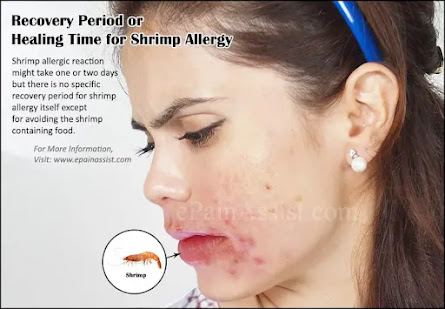SHELLFISH ALLERGIES
Shellfish allergies are a common type of food allergy that can cause severe reactions in those who are affected. It is important for individuals with shellfish allergies to be aware of the symptoms and treatment options available to them in order to prevent potentially life-threatening reactions.
Shellfish allergies are a type of food allergy that occurs when the immune system mistakenly identifies proteins found in shellfish as harmful. There are two main types of shellfish: crustaceans (such as shrimp, crab, and lobster) and mollusks (such as clams, oysters, and mussels). Both types of shellfish can trigger allergic reactions in sensitive individuals.
SYMPTOMS OF SHELLFISH ALLERGIES
The symptoms of a shellfish allergy can vary in severity from mild to life-threatening. Common symptoms include:
- Hives or a rash
- Swelling of the face, lips, tongue, or throat
- Difficulty breathing
- Nausea, vomiting, or diarrhea
- Dizziness or fainting
In severe cases, a shellfish allergy can cause anaphylaxis, a potentially life-threatening reaction that requires immediate medical attention. Anaphylaxis can cause a sudden drop in blood pressure, loss of consciousness, and difficulty breathing.
DIAGNOSIS AND TREATMENT
If you suspect that you or a loved one has a shellfish allergy, it is important to seek medical advice for proper diagnosis and treatment. A doctor may perform skin prick tests or blood tests to confirm the allergy. Once diagnosed, the best way to manage a shellfish allergy is to avoid all forms of shellfish and products that contain shellfish-derived ingredients.
In the event of an allergic reaction, individuals with shellfish allergies should carry an epinephrine auto-injector (such as an EpiPen) at all times and know how to use it. This can help to quickly alleviate severe symptoms and prevent anaphylaxis.
CROSS-CONTAMINATION AND HIDDEN SOURCES OF SHELLFISH
It is important for individuals with shellfish allergies to be aware of the potential for cross-contamination in restaurants and food manufacturing facilities. Even trace amounts of shellfish can trigger an allergic reaction in sensitive individuals. When dining out, it is important to inform restaurant staff about your allergy and ask about their procedures for preventing cross-contamination.
Additionally, individuals with shellfish allergies should carefully read food labels to identify hidden sources of shellfish in packaged foods. Shellfish-derived ingredients can be found in a wide range of products, including salad dressings, sauces, and flavorings.
LIVING WITH A SHELLFISH ALLERGY
Living with a shellfish allergy can present challenges, especially when dining out or attending social events where food is served. It is important for individuals with shellfish allergies to be proactive about communicating their allergy to others and advocating for their safety. This may involve educating friends and family members about the seriousness of the allergy and asking for their support in avoiding shellfish-containing foods.
It can also be helpful to seek out support from others who have food allergies. There are many online communities and support groups for individuals with food allergies, where people can share their experiences and learn from others who are managing similar challenges.
CONCLUSION
In conclusion, shellfish allergies can have a significant impact on the lives of those affected. By understanding the symptoms and treatment options for shellfish allergies, individuals can take steps to manage their condition and prevent allergic reactions. With proper precautions and support from healthcare professionals and loved ones, it is possible for individuals with shellfish allergies to live healthy and fulfilling lives.
KINDLY CLICK HERE NOW FOR MORE PRODUCTS TO HELP GET RID OF SHELLFISH ALLERGY
BY ANTHONY SCORE.G













0 Comments